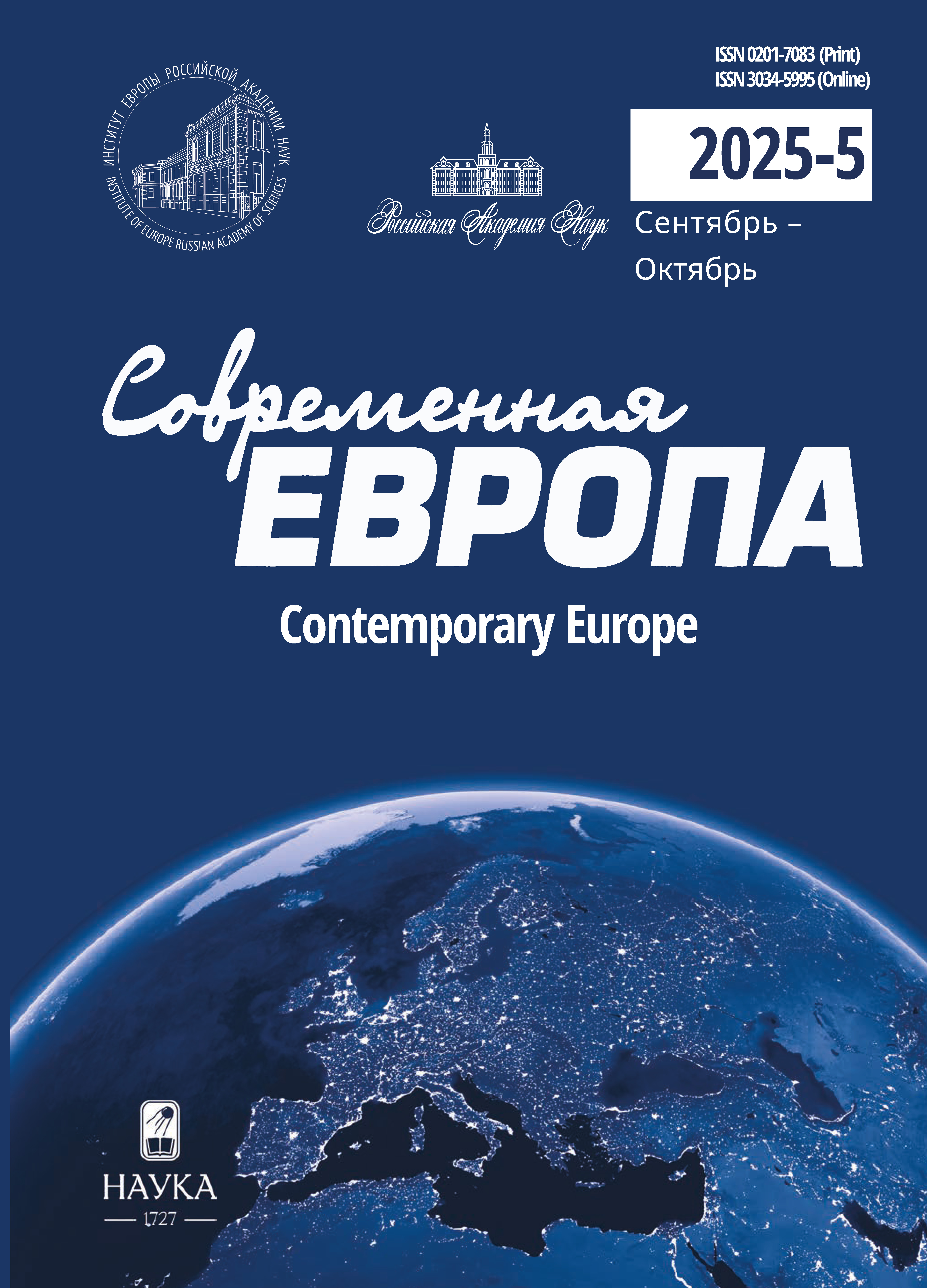ЭКОЛОГИЧЕСКОЕ ИЗМЕРЕНИЕ СОВРЕМЕННОЙ ЕВРОПЕЙСКОЙ КУЛЬТУРЫ
- Авторы: ВОДОПЬЯНОВА Е.В1
-
Учреждения:
- Институт Европы РАН
- Выпуск: № 4 (125) (2024)
- Страницы: 151-159
- Раздел: СОЦИАЛЬНАЯ СФЕРА
- URL: https://rjsvd.com/0201-7083/article/view/652339
- DOI: https://doi.org/10.31857/S0201708324040120
- ID: 652339
Цитировать
Полный текст
Аннотация
Цель исследования – изучить, как современные теоретические концепции культурной экологии воплощаются в культурной политике Евросоюза. Современная европейская культура рассмотрена в экологическом измерении с помощью модели культурной экологии/экологии культуры. Эта парадигма понимается в качестве способа видения изменяющихся в постиндустриальном мире отношений культуры и окружающей среды. В концептуальном измерении феномен культурной экологии проанализирован сквозь призму его генезиса в европейской и российской исследовательских традициях. Обосновано, что экология культуры предстает как сохранение культуры через сбережение природы и преодоление природных катастроф. Показано, что тенденции в экологизации культурной политики Евросоюза и управлении европейским культурным наследием нацелены на организацию функционирования в режиме совместной эволюции/коэволюции культуры и природы. С помощью примера негативного воздействия туризма проиллюстрирована необходимость единого рассмотрения экологических и социальных факторов сбережения культурного наследия. Выявлено, что современная европейская культура как социальный феномен последовательно эволюционирует по направлению оптимизации взаимодействия с природой. Подчеркнуто, что статус современной европейской культуры в парадигме культурной экологии отвечает современным тенденциям развития информационного общества в рамках зеленого измерения.
Об авторах
Е. В ВОДОПЬЯНОВА
Институт Европы РАН
Email: veritas-41@yandex.ru
Доктор философских наук, профессор Отдел социальных и политических исследований Россия, Москва
Список литературы
- Липец Е.Ю. (2017) Культурная экология: современные аспекты исследования этнической культуры. Научная мысль Кавказа. № 4. С. 42‒46.
- Лихачев Д.С. (2000) Русская культура. Искусство, Москва. 440 с.
- Назаров А.Г. (ред.) (2019) Экология культуры: К 110-летию со дня рождения Дмитрия Сергеевича Лихачева (28.11.1906 – 30.09.1999). URSS, Москва. 320 с.
- Baba M. (1995) The cultural ecology of corporation: explaining diversity in work group responses to organizational transformation. Journal of Applied Behavior Science. Vol. 31. Issue 2. P. 202‒233.
- Bird A., Fang T. (2009) Editorial: Cross Cultural Management in the Age of Globalization. International Journal of Cross Cultural Management. No. 9(2). P. 139‒143. DOI: https://doi.org/10.1177/1470595809335713
- Cacciotti R., Kaiser A., Sardella A., De Nuntiis P., Drdácký M., Hanus C., Bonazza A. (2021)
- Climate change-induced disasters and cultural heritage: Optimizing management strategies in Central Europe. Climate Risk Management. Vol. 32. DOI: https://doi.org/10.1016/j.crm.2021.100301
- Falk M.T., Hagsten E. (2024) Factors with ambiguous qualities for Cultural World Heritage Sites. Journal of Cultural Heritage. Vol. 66. P. 384‒391. DOI: https://doi.org/10.1016/j.culher.2023.12.009
- Fatorić S., Seekamp E. (2017) Are cultural heritage and resources threatened by climate change? A systematic literature review. Clim. Change. No. 142(1-2). P. 227‒254.
- Gross J., Wilson N. (2019) Creating the Environment: The Cultural Eco-systems of Creative People and Places. Creative People and Places. 65 p. URL: https://kclpure.kcl.ac.uk/ws/portalfiles/portal/113962091/Gross_Wilson._2019_Creating_the_Environment_FINAL_WEB.pdf (accessed: 12.03.2024).
- Holden J. (2015) The Ecology of Culture: A Report Commissioned by the Arts and Humanities Research Council’s Cultural Value Project. Arts and Humanities Research Council, Swindon, UK. 41 p. URL: https://publicartonline.org.uk/downloads/news/AHRC%20Ecology%20of%20Culture.pdf (accessed: 11.03.2024).
- Melnikas B. (2014) Enlargement of the European Union, Integral Cultural Space and Transition Processes: Equal Rights and the Ecology of Culture. Procedia ‒ Social and Behavioral Sciences. Vol. 110. P. 251‒258.
- Ost C., Saleh R. (2021) Cultural and creative sectors at a crossroad: from a mainstream process towards an active engagement. Built Heritage. Vol. 5. No. 14. DOI: https://doi.org/10.1186/s43238-021-00032-y
- Seraphin H., Sheeran P., Pilato M. (2018) Over-tourism and the fall of Venice as a destination. Journal of Destination Marketing & Management. Vol. 9. P. 374‒376. DOI: https://doi.org/10.1016/j.jdmm.2018.01.011
- Steward J.H. (1955) Theory of Culture Change. The Methodology of Multilinear Evolution. University of Illinois Press, Urbana, USA. 244 p.
- Trompenaars F., Hampden-Turner C. (1997) Riding the Waves of Culture. Nicholas Brealey, Boston, USA. 274 p.
- Zhang D., Pei Q., Lee H., Jim C., Li G., Zhang M., Li J., Wu Z., Wang L., Yue. R., Zhang S. (2020) Climate change fostered cultural dynamics of human resilience in Europe in the past 2500 years. Science of The Total Environment. Vol. 744. DOI: https://doi.org/10.1016/j.scitotenv.2020.140842
Дополнительные файлы











